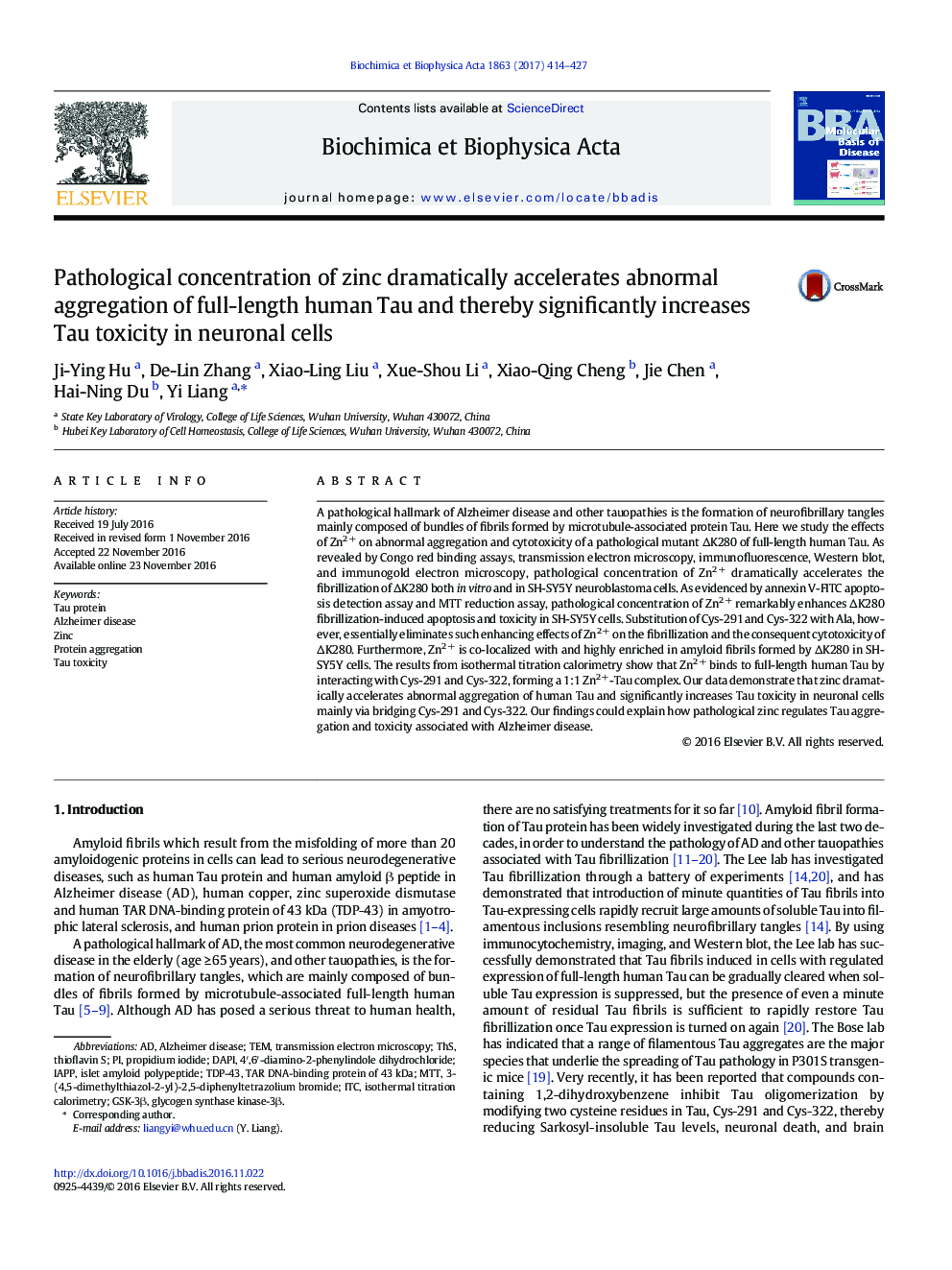| Article ID | Journal | Published Year | Pages | File Type |
|---|---|---|---|---|
| 5501113 | Biochimica et Biophysica Acta (BBA) - Molecular Basis of Disease | 2017 | 14 Pages |
Abstract
A pathological hallmark of Alzheimer disease and other tauopathies is the formation of neurofibrillary tangles mainly composed of bundles of fibrils formed by microtubule-associated protein Tau. Here we study the effects of Zn2Â + on abnormal aggregation and cytotoxicity of a pathological mutant ÎK280 of full-length human Tau. As revealed by Congo red binding assays, transmission electron microscopy, immunofluorescence, Western blot, and immunogold electron microscopy, pathological concentration of Zn2Â + dramatically accelerates the fibrillization of ÎK280 both in vitro and in SH-SY5Y neuroblastoma cells. As evidenced by annexin V-FITC apoptosis detection assay and MTT reduction assay, pathological concentration of Zn2Â + remarkably enhances ÎK280 fibrillization-induced apoptosis and toxicity in SH-SY5Y cells. Substitution of Cys-291 and Cys-322 with Ala, however, essentially eliminates such enhancing effects of Zn2Â + on the fibrillization and the consequent cytotoxicity of ÎK280. Furthermore, Zn2Â + is co-localized with and highly enriched in amyloid fibrils formed by ÎK280 in SH-SY5Y cells. The results from isothermal titration calorimetry show that Zn2Â + binds to full-length human Tau by interacting with Cys-291 and Cys-322, forming a 1:1 Zn2Â +-Tau complex. Our data demonstrate that zinc dramatically accelerates abnormal aggregation of human Tau and significantly increases Tau toxicity in neuronal cells mainly via bridging Cys-291 and Cys-322. Our findings could explain how pathological zinc regulates Tau aggregation and toxicity associated with Alzheimer disease.
Keywords
Related Topics
Life Sciences
Biochemistry, Genetics and Molecular Biology
Ageing
Authors
Ji-Ying Hu, De-Lin Zhang, Xiao-Ling Liu, Xue-Shou Li, Xiao-Qing Cheng, Jie Chen, Hai-Ning Du, Yi Liang,
